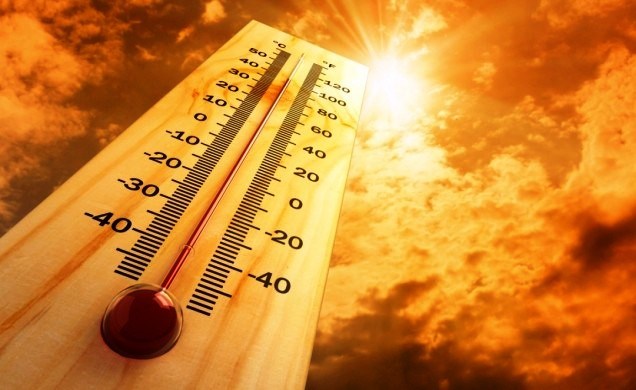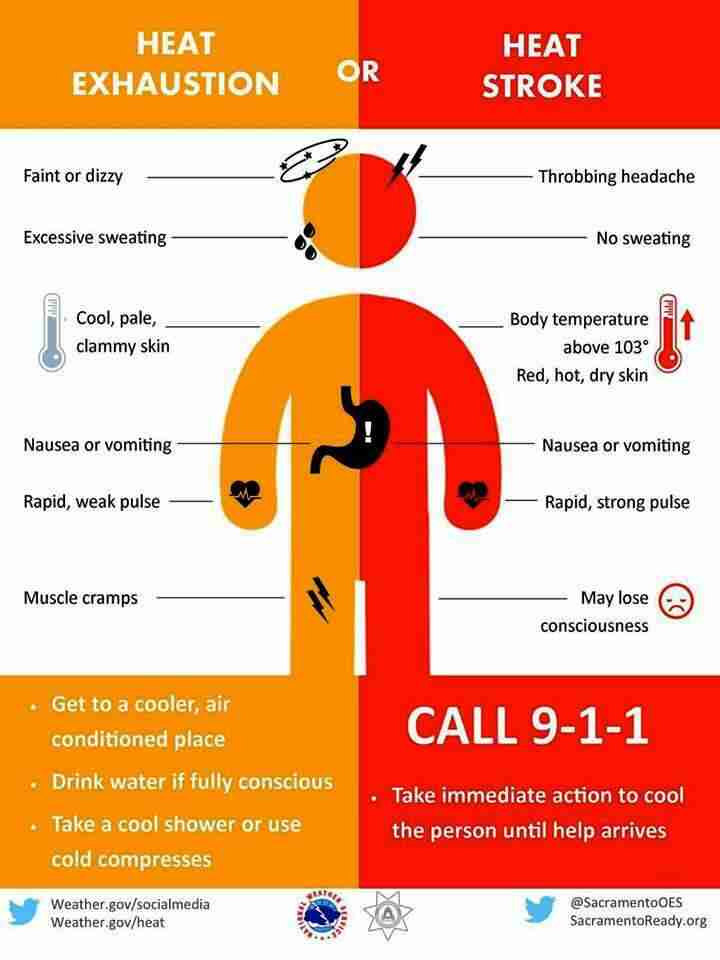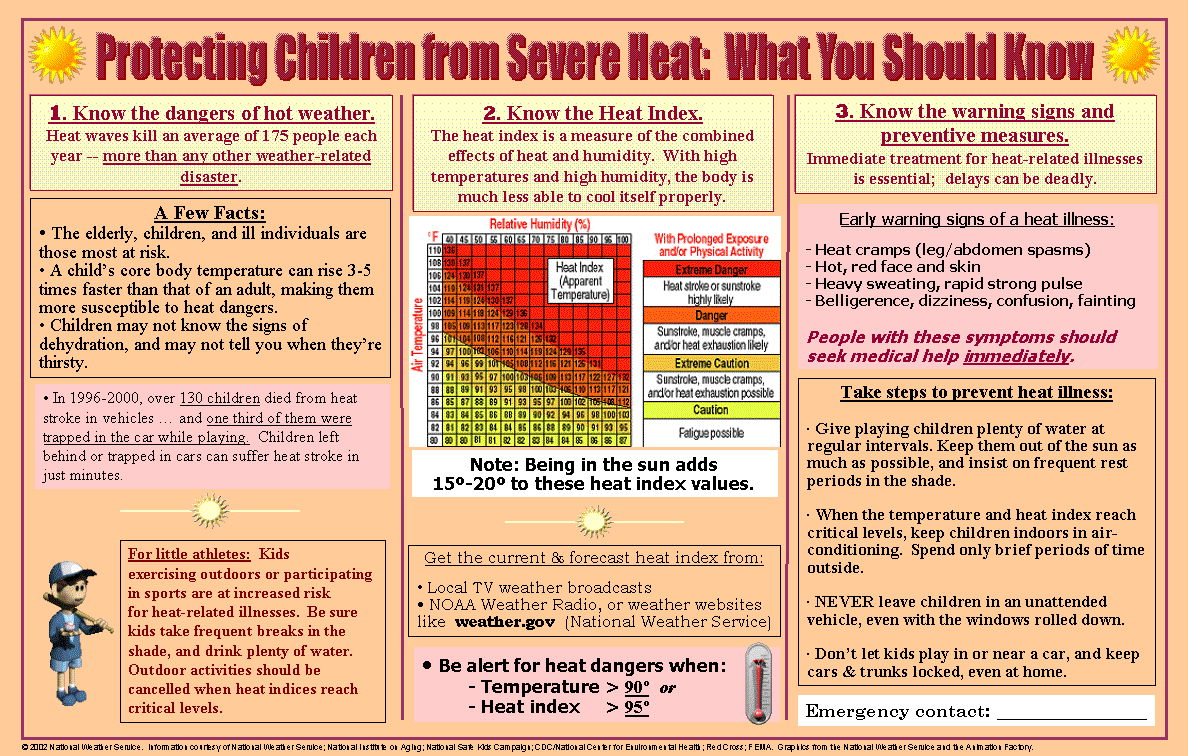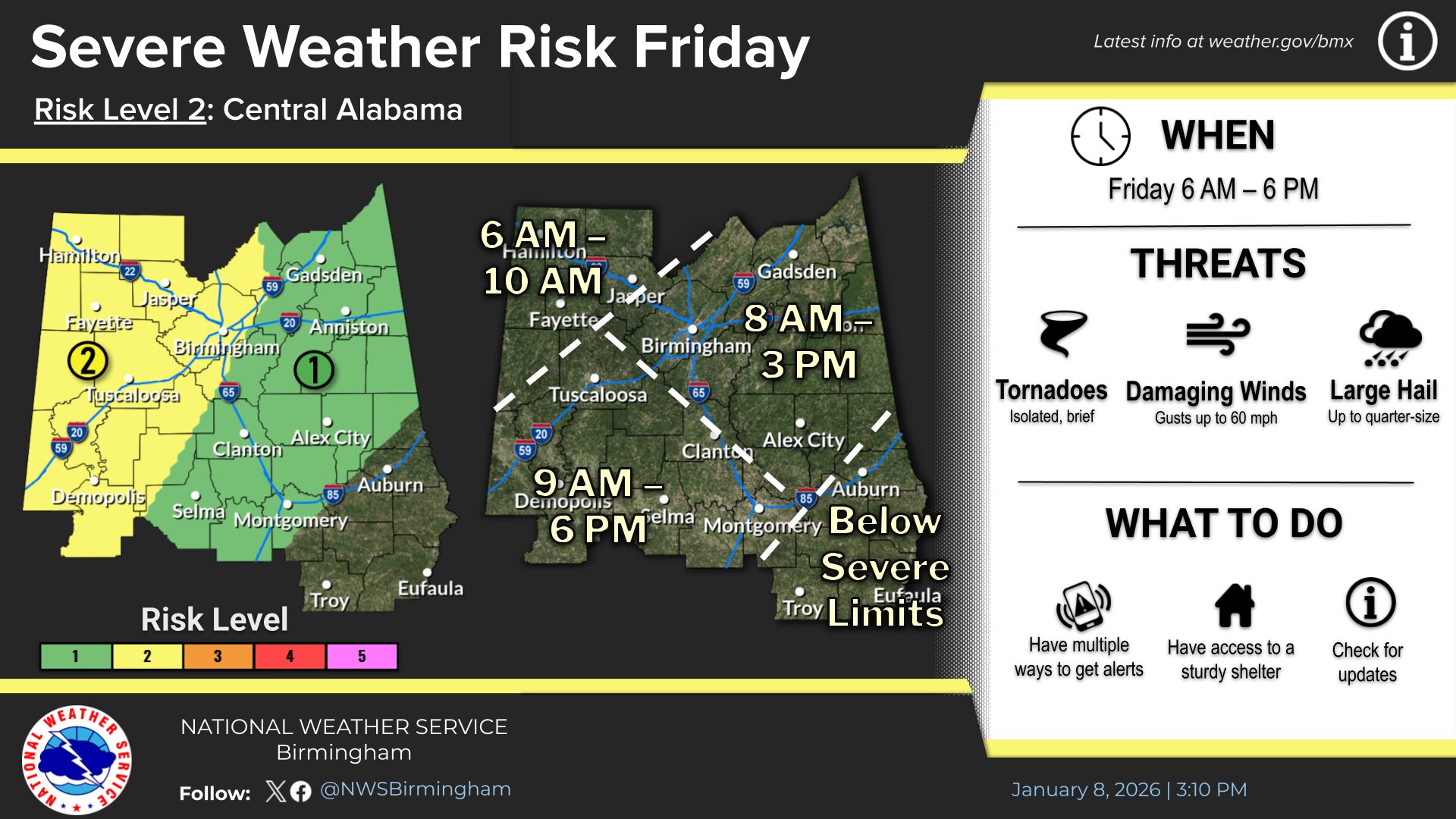
Beat the Heat with Red Cross Summer Safety Tips
As excessive heat warnings impact more and more people from the Central Plains to the East Coast, with highs expected to reach 100 degrees in Alabama this week – the American Red Cross has several steps you can take to stay safe.
ARE YOU AT RISK?
Summer heat and humidity can be deadly. According to the Centers for Disease Control, more than 600 people in the United States are killed by extreme heat every year; those who are most at risk of developing heat-related illnesse include athletes, infants, children, people who work outside, those suffering with any chronic medical conditions and adults age 65 and older.

HEAT STROKE IS LIFE-THREATENING
Excessive heat can lead to sunburn, heat cramps, heat exhaustion and heat stroke.
- If someone is experiencing heat cramps in the legs or abdomen, get them to a cooler place, have them rest, lightly stretch the affected muscle, and replenish their fluids with a half a glass (about 4 ounces) of cool water every 15 minutes.
- If someone is exhibiting signs of heat exhaustion (cool, moist, pale or flushed skin, heavy sweating, headache, nausea, dizziness, weakness, exhaustion), move them to a cooler place, remove or loosen any tight clothing, fan the person and spray the person with water or apply cool, wet cloths or towels to the skin. If they are conscious, give small amounts of cool water to drink. Make sure the person drinks slowly. Watch for changes in condition. If the person refuses water, vomits or begins to lose consciousness, call 9-1-1.
- If someone is exhibiting signs of heat stroke (hot, red skin which may be dry or moist; changes in consciousness; vomiting and high body temperature), call 9-1-1 immediately and move the person to a cooler location. Quickly cool the person’s body by immersing them up to their neck in cold water if possible; otherwise, douse or spray the person with cold water, or cover the person with cold, wet towels or bags of ice.

HEAT SAFETY TIPS
- Never leave your children or pets inside your vehicle. Hot cars can be deadly as temperatures inside the car can quickly reach 120 degrees.
- Stay hydrated by drinking plenty of fluids. Avoid drinks with caffeine or alcohol.
- Avoid extreme temperature changes. Wear loose-fitting, lightweight, light-colored clothing. Avoid dark colors which absorb the sun’s rays.
- Slow down, stay indoors and avoid strenuous exercise during the hottest part of the day.
- Postpone outdoor games and activities.
- Use a buddy system when working in excessive heat. Take frequent breaks if working outdoors.
- Check on family, friends and neighbors who do not have air conditioning, spend much of their time alone or are more likely to be affected by the heat..
- Those who don’t have air conditioning should seek relief from the heat during the warmest part of the day in places like schools, libraries, theaters, malls, etc.
- Check on animals frequently to ensure that they are not suffering from the heat. Make sure they have plenty of cool water.
About the American Red Cross:
The American Red Cross shelters, feeds and provides emotional support to victims of disasters; supplies about 40 percent of the nation’s blood; teaches skills that save lives; provides international humanitarian aid; and supports military members and their families. The Red Cross is a not-for-profit organization that depends on volunteers and the generosity of the American public to perform its mission.




